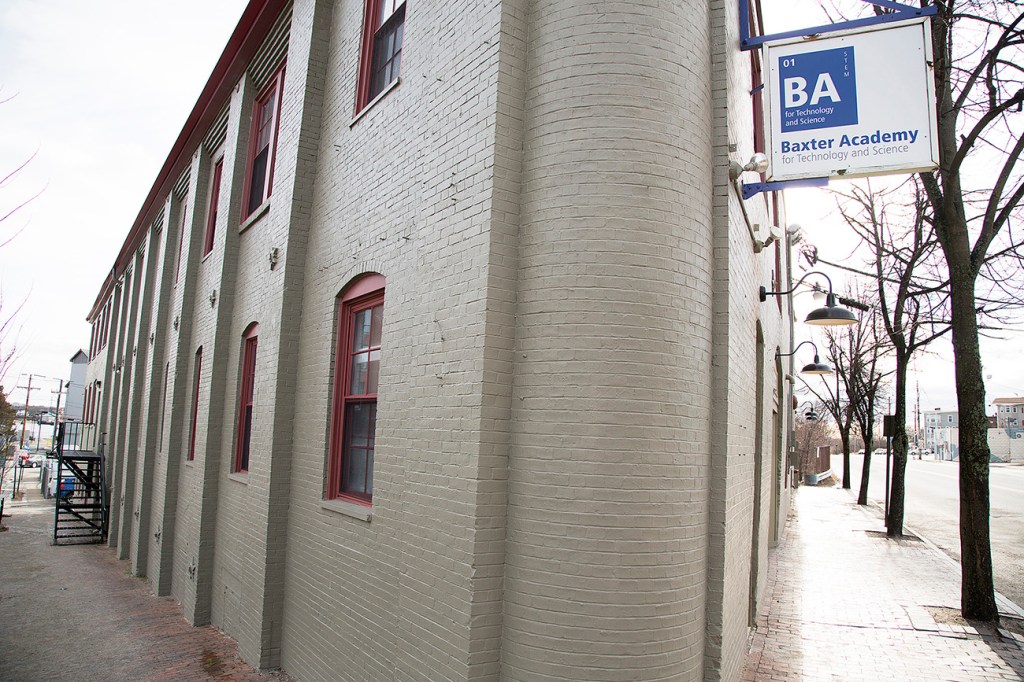School officials across Maine are scaling back their estimates of what they need set aside to pay local students’ charter-school tuition bills in anticipation of changes in the way charter schools are funded.
Under a bill awaiting Gov. Paul LePage’s signature, charter schools would receive money directly from the state rather than from the districts that send students to those schools. The current payment scheme has created huge expenses in recent years for districts located near popular charter schools.
Portland, for example, spent $250,000 last year on charter school tuition for students attending Baxter Academy for Technology and Science in Portland. And School Administrative District 54 in Skowhegan sent about $1 million to two nearby charter schools – Cornville Regional Charter School and Good Will-Hinckley in Fairfield.
“This bill best funds charter schools so that there isn’t this continuing animosity about school districts having to write checks to fund charter schools,” Maine Charter School Commission Chairwoman Shelley Reed said Wednesday night. “We think it’s just going to make things more palatable for everyone.”
Reed said 84 Maine school districts, which must currently track and file invoices for each student from their district that attends a charter school, will be affected by the legislation.
“It’s in everyone’s best interest that this becomes law,” she said.
There are six charter schools operating in Maine, including schools in Portland, South Portland, Gray and Harpswell. The Maine Connections Academy, which is based in South Portland, is a virtual school. A seventh school, The Maine Virtual Academy, is set to open this fall.
Portland Superintendent Emmanuel Caulk could not be reached for comment Wednesday night, but last year the Portland School District sent about $250,000 to charter schools to cover the costs of district students who attended them. Portland’s 2015-16 education budget, which will go to a citywide referendum vote Tuesday, presumes the governor will sign the bill. Caulk has not budgeted any funds for charter schools in 2015-16.
The Maine Senate passed L.D. 131 on Tuesday and sent it the governor, who has supported the change and is expected to sign it into law.
“This new funding method will relieve the unpredictable financial impact of charters to individual districts and is expected to be overwhelmingly supported by leaders of Maine’s school districts,” LePage’s office said in a prepared statement Wednesday.
“The change will also allow Maine to move beyond the divisive debate about charter school funding and refocus on how to create opportunities for students to be the most successful at Maine public schools, whether they be charter or traditional,” the statement said. Reed, with the charter school commission, said there doesn’t appear to be any opposition to L.D. 131.
“Once that’s signed, school districts will know that they will not be paying the bill for charter schools come this fall,” Suzan Beaudoin, the director of school finance and operations at the Maine Department of Education, said Wednesday.
Skowhegan schools were expecting to budget up to $1 million for charter school tuition costs next year. Fairfield-based SAD 49 was looking at an increase of more than eight times what it budgeted for 2014-15.
Although the bill would ease budgeting for school districts, it also means they could lose some state funding in the future.
Students who change to a charter school will be treated as if they moved to a new school district, and state funding will follow them, Beaudoin said. The result will be a reduction in state education aid to a local district for each student who attends a charter school. But that amount is considerably less than the entire tuition bill for each student that local districts pay under the current rules.
The coming year will be a grace period when schools won’t lose funding for the students who attend charter schools, which also will not have to pay the school bills, Beaudoin said.
Charter school payments total an estimated $6 million, Beaudoin said.
Local school officials will have to take the charter funding out of their anticipated expense budgets.
In SAD 49, payments to charters accounted for more than a third of the projected $2.1 million budget increase facing property taxpayers. School Board Vice Chairwoman Shelley Rudnicki said Wednesday that she intended to make a motion to remove that expense from the budget at the annual budget meeting Thursday.
In SAD 54, the administration didn’t even wait to take the money out of the budget. Superintendent Brent Colbry said his administration initially built in around $996,000 to pay for the 107 students it sends to charters, but pulled the money out as the legislation’s chances improved.
SAD 54, along with other districts, has been fighting for changes to how charter schools are funded for at least two years. The difference this year, Colbry said, is that other school districts that aren’t near a charter school are starting to feel the pinch from virtual charters, such as Maine Connections Academy, which opened in 2014.
“I think everyone is very confident it’s going to happen,” Colbry said. “All it needs now is the governor’s signature.”
Press Herald Staff Writer Dennis Hoey contributed to this report.
Send questions/comments to the editors.



Success. Please wait for the page to reload. If the page does not reload within 5 seconds, please refresh the page.
Enter your email and password to access comments.
Hi, to comment on stories you must . This profile is in addition to your subscription and website login.
Already have a commenting profile? .
Invalid username/password.
Please check your email to confirm and complete your registration.
Only subscribers are eligible to post comments. Please subscribe or login first for digital access. Here’s why.
Use the form below to reset your password. When you've submitted your account email, we will send an email with a reset code.